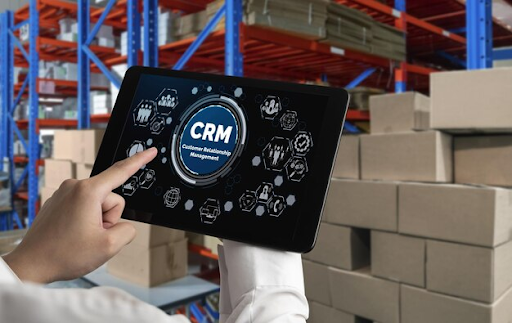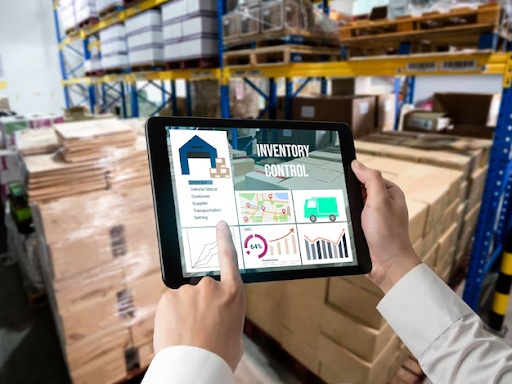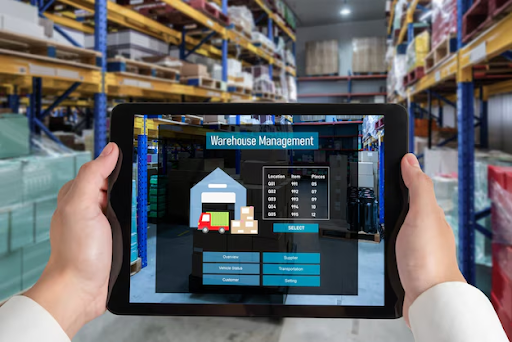CRM, short for Customer Relationship Management, is a customer relationship management system that helps businesses capture, track, and optimize interactions with customers throughout the service delivery process. With CRM, customer information is centralized and managed systematically, enabling the delivery team to work more efficiently and make quick decisions.
CRM is not just a tool for storing customer data, but also a comprehensive solution for improving customer experience and optimizing business processes.
This article will introduce how CRM systems can help logistics companies enhance operational efficiency, from improving order tracking capabilities to increasing customer satisfaction.
1. Why is CRM important for the logistics industry?

Effective management of customer and order information
In the logistics industry, information about customers and orders is often dispersed among different departments. CRM helps centralize this data, making it easy for employees to access and update information anytime, anywhere. This not only helps avoid errors due to lack of information but also improves the ability to provide accurate and timely services.
Tracking and updating shipment status in real-time
One of the major issues in the logistics industry is tracking shipments. CRM provides an online tracking system that allows departments and customers to update information about order status in real time. This not only helps reduce information gaps but also enhances transparency and trust between the business and customers.
Enhancing coordination between departments
Coordination between departments such as sales, operations, and customer service is very important. CRM helps create a synchronized information system between departments, enabling employees to work more efficiently, share information promptly, and resolve issues quickly. This connection not only increases productivity but also minimizes errors in the workflow.
Personalization of customer service
A major benefit of CRM is the ability to analyze and better understand customer needs and behaviors. Through recording transaction history, special requests, and customer habits, businesses can provide more personalized services, meeting the specific needs and expectations of each customer, thereby enhancing satisfaction and customer retention.
Data management and decision-making based on information
The logistics industry requires business decisions to be based on accurate and timely data. CRM provides powerful data analysis tools, helping businesses track performance, identify trends, and make better strategic decisions. This information not only helps optimize operations but also enables businesses to quickly seize opportunities and address issues in a timely manner.
Read more: Why do Freight Forwarder businesses need a specialized CRM system?
2. The main features of CRM help optimize transportation and delivery operations

Customer Management
- Comprehensive storage and management of customer information (contacts, transaction history, special requests).
- Classify customers to have an appropriate approach strategy.
- Monitor interactions with customers (email, calls, meetings).
Business Opportunity Management
- Monitor potential business opportunities from the initial stage to the closing of the deal.
- Managing quotes and contracts.
- Analyze the effectiveness of business activities.
Order and Shipment Management
- Create and manage shipping orders.
- Track the shipment status in real-time.
- Automate customer update notifications.
- Managing issues arising during the transportation process.
Customer Service Management
- Receive and handle customer requests and complaints effectively.
- Create and manage support tickets.
- Building a knowledge base to address common questions.
Reporting and Analytics
- Create custom reports on business performance, operational efficiency, and customer satisfaction.
- Analyze data to identify trends and make strategic decisions.
- Evaluate the effectiveness of marketing and sales campaigns.
3. Specific benefits of applying CRM in freight forwarding

Centralize customer and order data
CRM helps consolidate all customer and order information into a single system. This helps minimize the situation where information is dispersed among different departments, making it easier to access and process information more accurately. Thanks to that, tracking and managing orders becomes smoother and more efficient.
Improve the ability to track and manage shipments
The CRM system integrates the ability to track orders and shipments in real-time. Businesses can easily update the delivery status, from receiving the goods to successful delivery. Information about the route, estimated delivery time, and any arising issues are recorded in detail, helping employees quickly resolve incidents and provide timely information to customers.
Enhance coordination between departments
Departments such as sales, operations, warehousing, and customer service often have to coordinate closely in the logistics industry. CRM helps these departments work more synchronously by sharing data and information on a common platform. When departments can easily exchange information about order progress, customer status, and special requests, coordination between departments becomes efficient and avoids overlapping issues or errors.
Enhancing customer service quality through personalization
CRM helps businesses collect and analyze information about customer behavior and needs, thereby personalizing appropriate services. For example, the system can automatically identify special requests from customers or notify them of changes in the delivery schedule. Customers will feel more cared for and attended to, thereby increasing their satisfaction and loyalty.
Improving the customer service process
With CRM, customer service representatives can quickly access the entire transaction history and requests of customers. This helps them provide better service, handle customer inquiries and complaints quickly and accurately. At the same time, CRM also supports the automation of regular customer care tasks, such as sending notifications about order status or satisfaction surveys after delivery.
Forecasting and analyzing operational efficiency
CRM provides powerful analytical tools, helping businesses evaluate work performance, identify potential issues, and forecast future demand. Analyzing data from CRM helps managers make smarter decisions about optimizing processes, minimizing costs, and enhancing operational efficiency.
Managing and optimizing delivery routes
CRM can integrate with dispatch and delivery route management systems, helping businesses optimize resource allocation and route planning. This not only saves time but also reduces operating costs, while minimizing environmental impact by using less fuel.
Increase customer retention and market expansion
CRM helps businesses build strong relationships with customers by providing quality and personalized services. When customers are satisfied with the service, they tend to return and recommend it to other potential customers, thereby helping the business expand its market and maintain its competitive position.
Automating repetitive tasks
CRM helps automate repetitive tasks, such as sending order confirmation emails, reminders for customer follow-up calls, or notifications about schedule changes. This helps save time for employees and reduces the likelihood of errors.
4. Choosing and implementing an effective CRM for a logistics business

Choosing and implementing a CRM system for a logistics company is not an easy task. To ensure the effective application of CRM, businesses need to follow a systematic process and have a clear strategy. Here are the important steps to effectively select and implement CRM:
Evaluate the needs and goals of the business
Before choosing a CRM system, businesses need to clearly assess their needs and objectives for using CRM. The questions that need to be answered include:
- What data does a business need to manage? (Customers, orders, delivery status, etc.)
- What are the current challenges? (For example: customer information is scattered, lack of order tracking capability, lack of coordination between departments)
- What is the main goal when implementing CRM? (Improving customer service, optimizing delivery processes, increasing revenue, etc.)
- Clarifying these requirements will help businesses choose a CRM system that aligns with their strategy and scale.
Choosing the right CRM system
There are many CRM solutions on the market, each with different features and advantages. The important criteria for choosing a CRM include:
- Flexibility and ease of use: The CRM system needs to be easily customizable to fit the workflow and needs of the logistics business. It also needs to be user-friendly so that all departments can quickly get accustomed to it.
- Order and delivery tracking feature: A good CRM will help track the status of orders and shipments in real-time, improving the ability to provide accurate information to customers and the logistics department.
- Integration feature: CRM needs to have the ability to integrate with other software and systems that the business is using, such as transportation management software (TMS), accounting systems, or marketing tools.
- Security and legal compliance: Customer data and transportation information are very sensitive. Therefore, the CRM system needs to be secure and comply with regulations on personal data protection and cybersecurity.
- Support and customer service: Choose a CRM provider with good support services, including employee training and technical support when issues arise.
Training and preparing the staff team
An effective CRM system relies not only on software but also requires a team of capable employees to use and operate it. Therefore, businesses need to invest in training employees on how to use CRM, as well as how to leverage the system's features to optimize work processes. Related departments such as sales, logistics, and customer service need to be trained in sync to coordinate effectively.
Proceed with the implementation of the CRM system.
When the CRM system has been selected and employees have been trained, the business needs to implement the system step by step. The implementation steps include:
- System installation: Setting up the CRM system configuration and integrating it with existing software and systems.
- Initial data entry: Enter customer data, order data, and transaction history into the CRM. Data entry must be accurate and complete for the system to operate effectively.
- Check and adjust: After deployment, businesses need to check the system to ensure all features are functioning correctly and efficiently. If any issues or shortcomings are detected, immediate adjustments are necessary.
Measuring effectiveness and optimizing the process
After implementing the CRM system, businesses need to continuously monitor and evaluate the effectiveness of the CRM. The metrics that need to be monitored include:
- Revenue growth: CRM can help improve customer service and increase customer retention, thereby impacting revenue.
- Employee work efficiency: Monitor the time and performance of employees, see if CRM helps improve work processes and reduce errors.
- Customer satisfaction level: Evaluate customer satisfaction through surveys and feedback from customers, see if CRM helps improve service quality.
Based on this data, the business can continue to optimize processes and adjust the use of CRM to achieve maximum efficiency.
Update and maintain the system
CRM is a tool that needs to be regularly maintained and updated to ensure efficiency and security. Businesses need to have a plan to update software, secure data, and add new features as necessary.
5. Sota Solutions - a reputable CRM tool provider for freight forwarder businesses
In the freight forwarding industry, managing customer relationships and optimizing operational processes are very important. To help freight forwarding businesses address these challenges, Sota Solutions provides powerful CRM (Customer Relationship Management) tools that optimize the delivery process, enhance work efficiency, and improve customer service.
Why is Sota Solutions the ideal choice for Freight Forwarder businesses?
- CRM specifically designed for the freight forwarding industry
- Centralized management of customer and order information
- Enhance the ability to track and update shipment status.
- Improve coordination between departments
- Personalization of customer service
- Forecasting and analyzing data effectively
- Professional customer support and service
With a team that has many years of experience in this field, Sota Solutions is an excellent strategic partner for freight forwarder businesses looking to enhance work efficiency and improve customer relationships. With a powerful and fully-featured CRM system, Sota Solutions helps freight forwarding businesses address current challenges while opening up opportunities for growth and competition in the industry.
6. Conclusion
Maximizing the efficiency of transportation operations is not only an important goal but also a decisive factor that helps businesses maintain competitiveness and achieve sustainable development. With the significant challenges in managing information, tracking orders, and customer care, the implementation of CRM has become an essential solution. CRM not only helps businesses optimize workflows and enhance coordination between departments but also improves customer service quality through personalization and effective data management.
With CRM, maximizing operational efficiency in the logistics industry is no longer a difficult task, but a strategic move that helps businesses continuously enhance service quality and increase value in the eyes of customers. Contact us for consultation and to receive free materials.